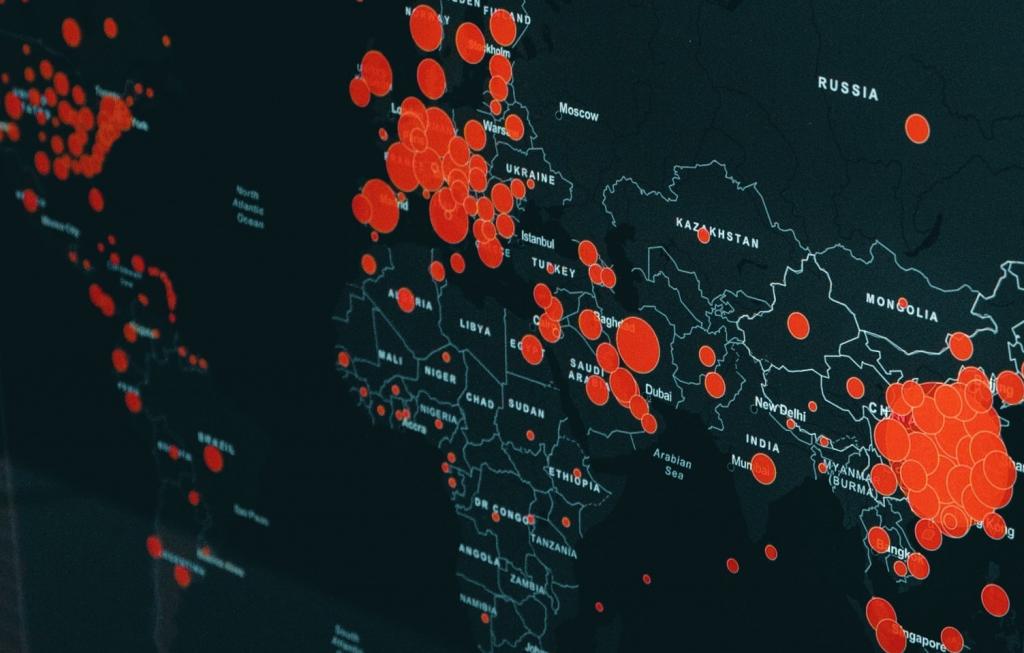The COVID-19 crisis has brought to light many realities about the contemporary global order, which was already far from stable. It demonstrates how quickly and deeply problems that originate in one part of the world can spread globally, highlighting the crucial need for collective responses. With 200+ countries and territories dealing with its consequences, the coronavirus disease pandemic has most obviously revealed the shaky foundations on which the global systems dealing with public health rest. But its effects go far beyond that.
The crisis has also made clear the inherent links among multiple issue domains, resulting in feedback loops that can compound existing and future challenges. Artificial Intelligence is increasingly relied on to find solutions to this, and other, emergencies and digital technologies are being deployed rapidly in an effort to continue “business as usual” as lock downs and economic downturns devastate the global job market. Yet digital technologies remain under-regulated, and pose the additional challenges of proliferating misinformation, cyberattacks, and privacy and human rights violations. Despite the apparent short-term environmental benefits due to economic shutdowns, it remains unclear whether the crisis will accelerate or hamper the imperative need to transition to green economies. COVID-19 has also reminded us of the troubles with effective global financial governance and the tendency of the current system to experience occasional shocks and recessions. In an effort to slow down the transmission of the virus, new travel restrictions by countries are redefining refugee and migration governance and place already marginalised populations at greater risk. In doing so, they have become reduced to “biosecurity” threats that need to be contained at a distance. Some national governments are using the crisis to advance other interests, implementing measures with tenuous connections to COVID-19 that range from “states of emergency” to limit the movement of people, to extraordinary government powers that overtly challenge the rule of law.
“Crises, ultimately, provide signals that an existing order is no longer viable”
As the World Health Organization attempts to address the crisis and re-establish its global authority, the meaningful work of many other international organisations has ground to a halt, precisely when multilateral cooperation is in the greatest demand but shortest supply. In that context, attention (and the onus) seems to have shifted to informal institutions and private actors. The G20 recently injected a much-needed fiscal stimulus to reduce the economic impact of the pandemic. Yet the billions invested in short term measures do not address the flaws of existing business models that contribute to climate change, inequalities and global challenges. In the private sector, the World Economic Forum is attempting to coordinate the corporate response to the pandemic with a new set of “Stakeholder Principles” put forward by business leaders, but it remains to be seen whether it will tackle the principle of solidarity.
Most of the responses to the COVID-19 crisis have been taken by existing (and in many cases outdated) institutions, which were themselves born out of past crises. It is becoming apparent that if we retain the same governance models that got us to where we are today, the incidence and severity of future crises will certainly outstrip our ability to respond to them effectively. Crises, ultimately, provide signals that an existing order is no longer viable.
The CODIV-19 pandemic therefore provides an opportunity to reflect critically on the deep-rooted reasons that brought us to where we are today and how to overcome them moving forward. It provides a catalyst for creative thinking, across disciplinary boundaries and beyond existing paradigms, about new governance models that can help overcome entrenched limitations.
It is in this context that we have launched a special series of think pieces on the theme “Governance, in crisis”, to be published regularly on the Global. It aims to : 1) Investigate the inherent connections among issue domains and the resulting governance challenges (e.g. the relationship between the COVID-19 pandemic and trade, environment, migration, technology); 2) Reveal the limits and/or untapped potential of existing governance systems, globally, regionally, nationally, locally, to solve wicked problems; 3) Promote creative thinking about how to predict/overcome crises and better address future global challenges.
Read the published pieces in the series here.
For more information about how you can contribute, consult the editorial guidelines or contact: globalgovernance@graduateinstitute.ch



